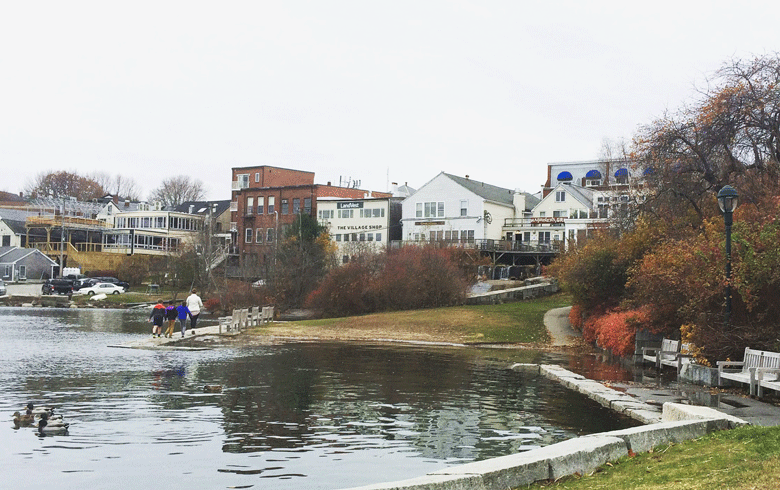Both my wife and I grew up in Maine, but it wasn’t until we married that I adopted her family’s tradition of buying pounds of wholesale Maine shrimp and spending New Year’s Day (my mother-in-law’s birthday) shelling and freezing them for the coming months. It was an annual ceremony straight out of a Robert McCloskey book: rolled up sleeves, aprons, buckets, and the briny smell.
When my daughter was born it meant another generation would enjoy this tradition and presumably carry it on to future generations. Presumably. But when she was only a few years old, Maine’s shrimp harvests were ended as rising water temperatures decimated numbers.
It was a modest family tradition but a $13 million industry for a small state with a heritage of hard-working families. The loss caused us to question how our impacts on the environment could drive from our state a resource that had been native for millennia, what else this meant for the natural bounty we all rely on, and what else we would lose without a change of course.
As the only state with both of our senators on the Senate Climate Solutions Caucus, Maine can do more…
Scientists tell us that although climate change is accelerating all over the world, the Gulf of Maine is warming faster than 99 percent of the world’s oceans. Those of us who live and work on the ocean can see it firsthand, as can every Mainer who remembers longer childhood winters, or barefoot summers without any concern for ticks and the diseases they carry.
Maine should be proud and encouraged by recent work in our towns, governments, and businesses to create a more sustainable future. But with only 3 percent of U.S. carbon dioxide pollution, Maine can’t solve this alone.
Fortunately, we have a tremendous opportunity for public good even in these fraught times. As the only state with both of our senators on the 14-member bipartisan Senate Climate Solutions Caucus, Maine can do more than any other state to guide national policy that would not only protect the climate but also benefit working Mainers, grow local businesses, and disadvantage high-polluting out-of-state competition.
A national carbon fee and dividend policy applies a gradually increasing price on carbon pollution at its industrial source (coal mine, oil well, gas site, or port of entry) but returns that money to every U.S. taxpayer as a monthly dividend check.
Carbon pricing has been shown to do more to reduce carbon pollution than any other policy. Returning that revenue creates jobs and spurs economic growth while monthly dividend checks exceed energy cost increases for all but the wealthiest earners.
Maine’s rural areas are projected to especially benefit from carbon cash back payments and economic growth in sustainable agriculture and aquaculture (which are exempt from carbon pricing), renewable energy, and revitalized forestry. Benefits like these have inspired over 28 Maine communities and hundreds of Maine business and community leaders to endorse this policy.
Because it relies on market innovation without picking winners and losers, carbon fee and dividend has the support of business advocates like the U.S. Chamber of Commerce, the Business Roundtable, the Commodity Futures Trading Commission, and more than 3,600 economists (which is more than any other such policy). But because it has been shown to be the tremendously effective and equitable, it has also earned the support from Maine Conservation Voters, the World Resources Institute, the American Federation of Teachers, and the chair of the Progressive Caucus, the Congressional Black Caucus, the Hispanic Caucus and many others.
Sens. King and Collins and Reps. Pingree and Golden should be thanked for their climate leadership. Please take 20 seconds to ask them to champion effective and equitable climate policy through cclusa.org/action. Maine’s future thanks you.
Peter Dugas is an EN-ROADS Climate Ambassador, 2021 Portland Press Herald Source Award winner, and Maine state co-coordinator of Citizens’ Climate Lobby, an international volunteer organization dedicated to building the political will for a livable world.





